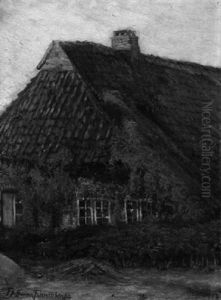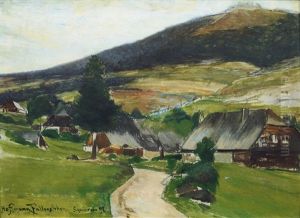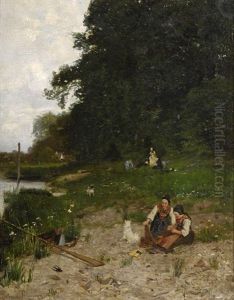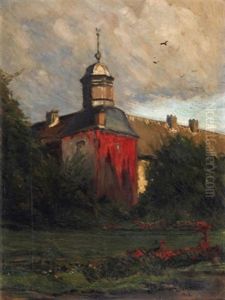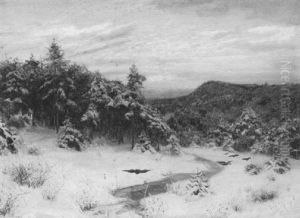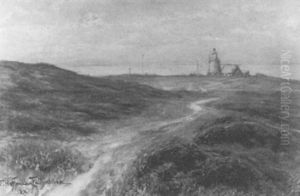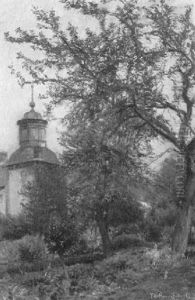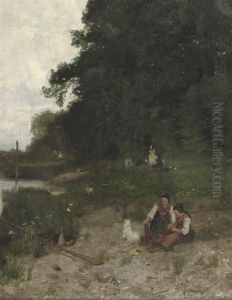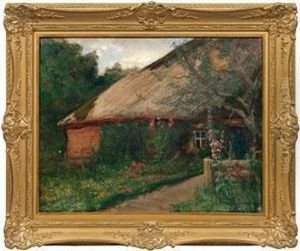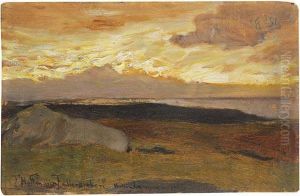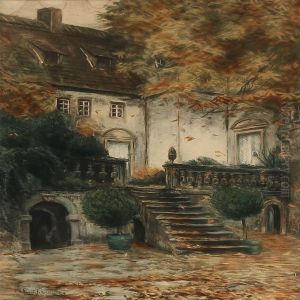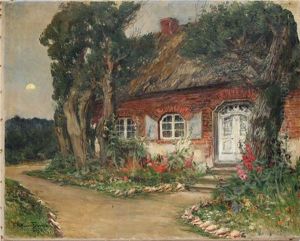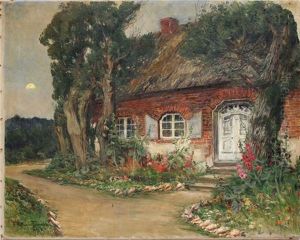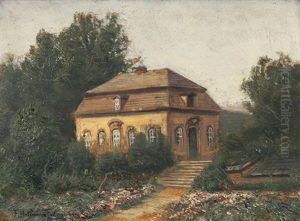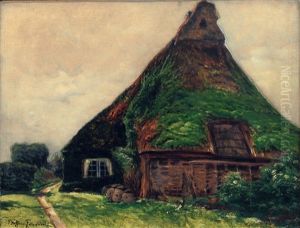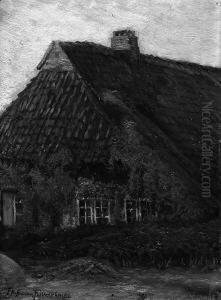Franz Hoffmann-Fallersleben Paintings
Franz Hoffmann-Fallersleben, born August Heinrich Hoffmann in Fallersleben (now part of Wolfsburg) on April 2, 1798, was a German poet, philologist, and collector of folk songs. Best known for writing the lyrics of 'Das Lied der Deutschen,' whose third stanza is now the national anthem of Germany, Hoffmann played a significant role in the German nationalist and liberal movements of the 19th century.
Hoffmann studied at the University of Göttingen, where he became deeply interested in German literature and medieval languages, initiating his lifelong passion for philology. After his studies, he embarked on a career as a librarian and professor, holding positions at the University of Breslau (now Wrocław) and other institutions. Throughout his career, Hoffmann was dedicated to the study and preservation of German folk songs, which he believed were crucial to understanding the German spirit.
His political beliefs, however, often put him at odds with the authorities. Hoffmann was a vocal critic of German political fragmentation and the lack of a unified nation-state, which led to his dismissal from academic positions and a period of exile. During his exile, he traveled throughout Germany, Switzerland, and Italy, continuing his work and writing poetry that expressed his nationalistic and liberal ideals.
Hoffmann's most famous work, 'Das Lied der Deutschen' ('The Song of the Germans'), was written in 1841 while he was on the North Sea island of Heligoland, then a British possession. The song called for German unity, freedom, and fatherland, themes that resonated with the burgeoning movement for German unification. Though it was initially banned in several German states, it became a popular anthem among those advocating for a unified Germany, and its third stanza was adopted as the national anthem of the Federal Republic of Germany in 1952.
Beyond his political poems, Hoffmann also made significant contributions to the study of German folklore and literature. He published numerous collections of folk songs and tales, and his work in philology helped lay the groundwork for the academic study of folklore. Hoffmann's dedication to capturing the essence of German culture and language through these folk traditions has left a lasting legacy in the fields of literature and folklore studies.
Despite the controversies that marked his career, Franz Hoffmann-Fallersleben is remembered as a pivotal figure in the 19th-century movement for German nationalism and as a key contributor to the preservation of German folk culture. He died on January 19, 1874, in Corvey (now part of Höxter), leaving behind a body of work that continues to be celebrated for its contribution to German national identity and cultural history.
